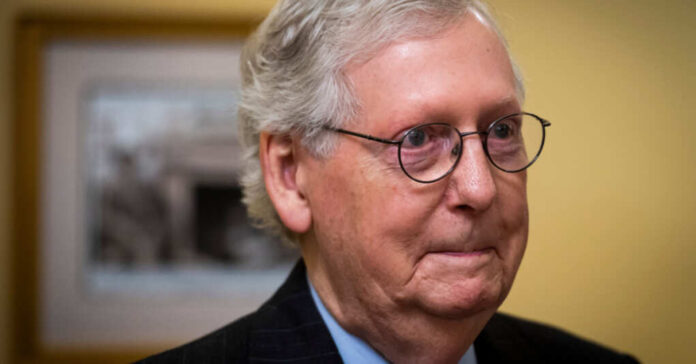
With President Joe Biden stumbling, bumbling, and rumbling incoherently on the national stage, many voters have expressed age-related concerns regarding the leader of the free world. But while Biden is the most visibly age-challenged player in the game, he is far from the only one.
In early 2023, Senator Dianne Feinstein (D-CA) took some time off for a medical problem and returned a shell of her former, fiery self. The once vibrant 90-year-old senator has taken on a lighter schedule, appearing in the Senate at committee hearings or on the floor only when her vote is necessary. Formerly an outspoken advocate of gun control, Feinstein avoided a Democratic Caucus meeting on gun violence. She avoids the press whenever possible.
When she does make an appearance, she is in a wheelchair surrounded by a gaggle of aides, who whisper in her ear during meetings. She is ushered through a private entrance of the Capitol building and uses a back elevator to get to the chamber. Many lawmakers have noted they have not seen or spoken to Feinstein since her return.
Since her shingles diagnosis in February, the California senator has missed many votes, presenting a notable roadblock to her own party in key decisions such as judicial nominees. Colleagues are increasingly calling on the ailing and often confused Feinstein to step down.
Senator Mitch McConnell (R-KY) is the longest-serving party leader. The 81-year-old McConnell was first elected in 1984 and is arguably considered to be a master of Senate procedures. He is predictably a nuisance for Democrats and, many times, for Republicans as well.
Unfortunately, he has had two episodes of “freezing” on camera in the past two months, prompting concerns that his health and mental acuity are failing him. His latest scare was chalked up by his aids to simply feeling “light-headed,” but two incidents in as many months are prompting more than a little concern among his colleagues and voters alike.
In March, McConnell fell at a fundraising dinner and suffered a concussion. Days prior to the second “freeze” incident, he fell at an airport. Colleagues had noted that Senate Minority Leader McConnell has seemed more reserved, speaking quietly and with a rumbling tenor to his voice.
McConnell’s health is concerning for all as Senators return from their summer recess to tackle numerous legislative issues in the face of yet another government shutdown.
But it’s not all wheelchairs and sandbags for the members of Congress. Nancy Pelosi (D-CA) gave up the gavel as House Speaker, understanding that her time as leader, at age 83, is behind her. She is still on her game as a rank-and-file member of Congress, and while she may not be popular, there is no doubt she is still capable of creating and backing disastrous policies.
For voters, age matters ahead of the upcoming elections. A recent AP-NORC poll revealed that 77% of Americans feel that an 80-year-old President Biden is too old for a repeat term. While former president Donald Trump, currently aged 77, sees this as an advantage to his own campaign, he may be disheartened to hear that more than half of voters feel the same about him.
The White House is quick to cover Biden’s gaffes and to dismiss increasing voter concerns that the president is aging, none too gracefully, out of the position. Rather than addressing the issue directly, White House press secretary Karine Jean-Pierre does what she does best – deflect and misdirect.
“You know, since 2019, the age comment has been out there, and what has this president done?” she said. “He beat Republicans in 2020. He beat Republicans in 2022.” She went on to outline Biden’s “accomplishments,” repeating frequently debunked claims about the economy, alleged “wage growth,” and unemployment. She touts the “historic amount of changes” that he’s made.
While it is true that Biden has certainly made “historic changes,” none for the benefit of the American people, it’s getting harder to ignore his age-related cognitive decline.
Ousting members of Congress because they are “too old” is unconstitutional, however. Per Article I, Section 3 of the Constitution, there are just three requirements for someone to serve in the Senate. Persons must be a U.S. citizen, at least 30 years of age, and live in the state they represent.
The founding fathers probably never envisioned Congress as a nursing home for the physically and mentally unfit, however, much less that the country could conceivably be led by octogenarians.














